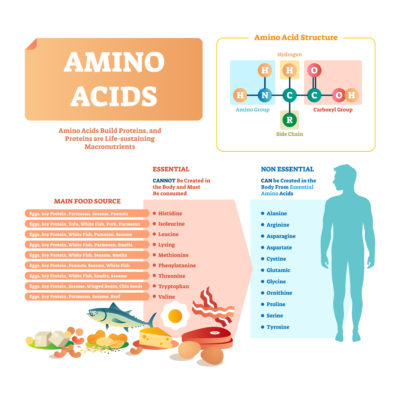Microbiome and Nutrition
The complex community of bacteria, yeasts and viruses living in our intestines, collectively known as the gut microbiome, is shaped, in part, by what we eat. Genetics, environment, and other factors also influence an individual’s microbial community. Research at the NRI investigates these complex relationships and their impact on disease risk. We use animal models and bioinformatics to study the associations between nutritional metabolites, gut microbiome, and health. What happens in the gut doesn’t stay in the gut. Your microbiome can play a role in cardiovascular disease, obesity and diabetes, and even cancer. Our team envisions a future where analysis of your microbiome can determine disease risk, and medical foods can be prescribed to treat and prevent disease by regulating the microbiome.
Publications
Microbiome and Nutrition Publications
2020
Population studies of TMAO and its precursors may help elucidate mechanisms. Meyer K
2019
Association of dietary patterns with the gut microbiota in older, community-dwelling men. Meyer K
2018
Meta-analysis of human genome-microbiome association studies: the MiBioGen consortium initiative. Meyer K
Human microbiota, blood group antigens, and disease. Sumner S
2017
Trimethylamine N-Oxide, the Microbiome, and Heart and Kidney Disease. Zeisel S
2016
Diet and Gut Microbial Function in Metabolic and Cardiovascular Disease Risk. Meyer K
Antibiotic-mediated gut microbiome perturbation accelerates development of type 1 diabetes in mice. Sumner S
Related News
How Diet Enhances Our Natural Anti-Cancer Response
September 28, 2017 One of the ways the body controls the overall number of cells is by initiating a preprogrammed cell death routine, known as apoptosis, in damaged or otherwise unnecessary cells. Apoptosis allows elimination of cells without induction of an autoimmune response. A hallmark of many types of cancer cells is a resistance to apoptosis; hence, tumors continue to grow and metastasize. Finding ways to defeat this resistance in cancer cells is an area of active research.
Polyphenols: Colorful, Healthy, Plant Compounds You May Already Eat & Drink
September 28, 2017 – Many of the foods you eat are loaded with polyphenols: plant-based compounds that are anti-oxidant, anti-inflammatory and anti-infection. Polyphenols are considered non-nutritional, meaning that they help prevent disease and keep you healthy in a different way than vitamins, minerals, or other nutrients like carbohydrates, fats, and protein. David Nieman, DrPH, director of the Appalachian State University Human Performance Lab at the North Carolina Research Campus (NCRC), explains that polyphenols are a type of phytochemical, the colorful chemicals in plants that confer a variety of health benefits. “In many fruits and vegetables, all the colors that you see are the polyphenols,” he says. “That’s what you want, a lot of color in your diet.”
September 2017
The Ironies of Iron During Pregnancy Iron is listed by the American Pregnancy Association as one of the nutrients essential for healthy fetal development. Why? Because a lack of iron, a mineral naturally found in foods like meat, seafood and vegetables, directly...
Build Stronger Muscles with All Kinds of Protein
August 28, 2017 – From the desks of Martin Kohlmeier, MD, PhD and Robyn Amos-Kroohs, PhD
Protein is an important part of every cell in the body. Protein is also a building block of enzymes, hormones, and other important substances used in body processes. It’s a major component of most body systems, including the immune system, metabolism, and circulatory system. Its importance is why protein is known as a macronutrient, meaning that large amounts are required to help the body function appropriately on a daily basis. And unlike sugar and fats, macronutrients that have acquired bad reputations, protein is recognized as an important part of a healthy diet.
The Ironies of Iron During Pregnancy
August 28, 2017 – Iron is listed by the American Pregnancy Association as one of the nutrients essential for healthy fetal development. Why? Because a lack of iron, a mineral naturally found in foods like meat, seafood and vegetables, directly impacts the development of the fetal brain. Iron also prevents anemia, low birth weight and premature delivery. Unfortunately, 22 percent of US women in their childbearing years are iron deficient, says Susan Smith, PhD, deputy director of science at the UNC Nutrition Research Institute on the NC Research Campus.
UNC-CH Nutrition Research Institute Graduate Student Housing Opens Steps Away from NCRC Main Campus
June 27, 2017 • The Nutrition Research Institute (NRI) offers unique learning and work experiences for graduate students in the fields of nutrigenomics and metabolomics. Our research relies, in fact, on the work these students do. But until recently the institute has been short on student housing, creating hardship for those who wished to study and work here. That has changed with the opening of five newly refurbished houses a short walk from the institute and the rest of the North Carolina Research Campus, offering both short- and long-term student housing options.


